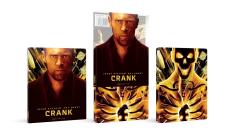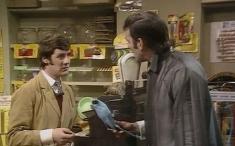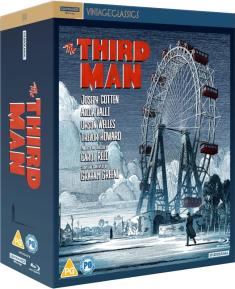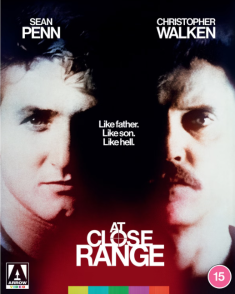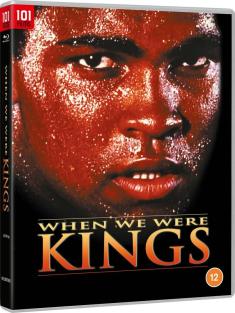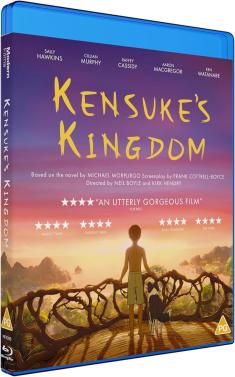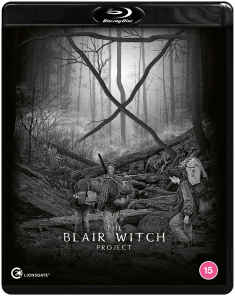Crouching Tiger, Hidden Dragon
Overview -
An epic set against the breathtaking landscapes of ancient China, Crouching Tiger, Hidden Dragon, combines the exhilarating martial arts choreography by Yuen Wo-Pind (The Matrix) with the sensitivity and classical storytelling of an Ang Lee film. The result is something truly unexpected: romantic, emotionally powerful entertainment.
Storyline: Our Reviewer's Take
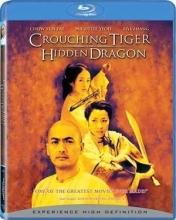
When it was released theatrically in 2000, 'Crouching Tiger, Hidden Dragon' represented the first exposure most Western viewers ever had to the genre known as wuxia. Long a staple of Asian literature and cinema, wuxia stories mix elements of historical epic, martial arts action, and fantasy, in which characters can float through the air, walk on water, and perform all manner of amazing feats in defiance of the laws of physics and nature. Wuxia characters are like comic book superheroes rooted with a profound Buddhist philosophical bent.
A small handful of previous wuxia films, such as Jet Li's popular 'Once Upon a Time in China' series, had found a cult audience in the West. 'Crouching Tiger' was the first movie to introduce the genre to the mainstream. The film was a phenomenal success. It became the first foreign-language picture to gross over $100 million at the American box office, won four Oscars, and was nominated for several more. Ironically, the movie was less popular in Asia, especially China, where many audiences complained that it was too Western in structure and tone, too talky, and took too long to rev up to the action.
There's a reason for that. Taiwanese director Ang Lee's prior films, such as 'The Wedding Banquet' and the wonderful 'Eat Drink Man Woman', were intensely personal character dramas. After moving to the West, he continued that trend with the Jane Austen adaptation 'Sense and Sensibility' and the dysfunctional family drama 'The Ice Storm'. Returning East to make 'Crouching Tiger, Hidden Dragon', he approached the material from a similar perspective, one more akin to art films than action movies. The story focuses first on its character dynamics, allowing the action to evolve naturally from that, rather than the other way around, as is usually the case.
Hong Kong action superstar Chow Yun-Fat trades his usual cop and gangster roles for his first martial arts epic. He stars as Li Mu Bai, a warrior monk and master of the secret Wudan mysticism. Upon his retirement from fighting, Li Mu Bai makes a journey to visit his former mentor, ostensibly to present his prized sword, the Green Destiny, as a gift. However, the real purpose of the trip is to see Shu Lien (the extraordinary Michelle Yeoh), the woman who could have been the love of his life. Unfortunately, soon after arriving, a young rival steals the Green Destiny, forcing Li Mu Bai to retrieve it as a matter of honor. In the process, he may finally discover a disciple worthy of passing down his experience and wisdom.
Taken literally, the "Give back my sword!" plot is a rather thin conceit for such an epic story. Of course, the sword should be viewed metaphorically, as a symbol for the life that Li Mu Bai wishes to put behind him. Before he can move on to the next phase of the life he wants to live, he must properly retire the weapon and teach his young protégé its true purpose and meaning.
Despite a lack of experience, Chow transitions smoothly into his first wuxia role. The unnerving sense of stillness he conveys in action is a weapon more dangerous than Li Mu Bai's missing sword. Michelle Yeoh, who brings a more extensive background in the genre, proves herself equally adept at the nuanced dramatic work. But the real breakout of the production is Zhang Ziyi, whose beauty and intensity deservedly propelled her into major stardom with this movie.
'Crouching Tiger, Hidden Dragon' is a lyrical blend of myth, romance, generational strife, melodrama, and fabulous displays of martial arts prowess. The movie was deliberately designed as a fusion of Eastern and Western storytelling traditions, both literary and cinematic. Its themes of repressed emotions and unrequited love are taken straight from the Jane Austen playbook. The director often describes it as, "Sense and Sensibility with kung-fu." The secret to its success is the skillful balance it strikes between such disparate parts. It is neither straight action movie nor straight art film. By blending these genres together, the film rises above them and pushes forth into something newer and better. This is a tremendously entertaining and stimulating movie, invigorated with the power and potential of cinema.
The Blu-ray: Vital Disc Stats
After originally announcing the movie for release in January of 2007 and then postponing it indefinitely, Sony Pictures Home Entertainment has finally brought 'Crouching Tiger, Hidden Dragon' to the Blu-ray format. Unfortunately, they've made the galling decision to release it in North America exclusively as part of a three-movie box set along with 'House of Flying Daggers' and 'Curse of the Golden Flower', two films that it shares no direct connection with, other than the fact that they're all kung-fu movies distributed by Sony. The other two titles were also previously released on Blu-ray individually back in 2006 and 2007 respectively. The new discs are 100% identical to those older Blu-rays, just inserted into a new slipcover box.
The cover art for the 'Crouching Tiger' disc was also quite obviously prepared back in 2007. It has incorrect listings for the audio formats, subtitle options, and region coding. While marked with a Region A indicator, the actual disc is region-free. It has Dolby TrueHD 5.1 audio rather than PCM 5.1. In fact, the movie's true language is Mandarin, not Cantonese.
On top of all this, the studio has given the new box set an outrageous MSRP of $92.95. Although currently selling for less than half that price at retailers such as Amazon, even at $40, the box set is tremendously overpriced for fans that may only want the one movie, and no doubt already own the other two.
'Crouching Tiger' has also been released individually in the UK with Steelbook packaging. Even after international shipping charges, that region-free disc (compatible with American Blu-ray players) should still be cheaper than buying the domestic edition.
In either case, the disc automatically opens with one of Sony's annoying Blu-ray promos before the main menu.
Video Review
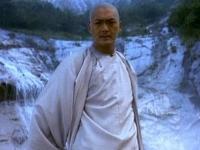
In the commentary on the disc, director Ang Lee describes his desire to photograph the movie with a soft palette reminiscent of oil paintings. It should also be noted that the film had an extensive amount digital wire removal performed, in addition to quite a few CG visual effects. As a result, the picture has a patina of softness and isn't necessarily the sharpest video image you'll find in high definition. Nevertheless, the Blu-ray's 1080p/AVC MPEG-4 transfer (presented at the theatrical 2.35:1 aspect ratio) generally exhibits very good detail and texture. It has a nice film-like appearance, and is an unmistakable improvement over the heavily-filtered and electronically-sharpened picture on the Superbit DVD released back in 2001. The studio has also cleaned up most of the dirt and film damage that plagued prior video editions.
Mild film grain is present and appears to be accurately rendered. No overt Digital Noise Reduction or edge enhancement artifacts are visible. The color balance on the Blu-ray is a little different than the DVD, but neither stands out as more correct than the other without a definitive reference to judge against. The Blu-ray's colors are often quite striking, especially the rich greens of the bamboo forest.
Black levels are very deep. If anything, it seems that the studio has artificially tweaked the contrast, which leaves dark scenes too dark and crushes some shadow detail. Even so, the problem isn't too severe. This is a fine-looking transfer.
Audio Review
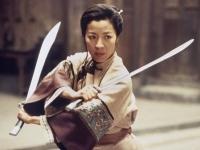
Disregard anything written on the case art, which claims "Cantonese PCM 5.1" audio. There's no PCM anywhere on the disc, and the movie's actual language is Mandarin. (The disc menus simplify this further by just advertising "Chinese," as if there were no distinction.)
'Crouching Tiger' has always had a stunner of a soundtrack. The DTS option on the Superbit DVD has long been a go-to home theater audio demo. The Blu-ray does that one better with a lossless Dolby TrueHD 5.1 track that handles both the quiet dialogue scenes and frenzied action with equal perfection. Tan Dun's musical score, driven heavily by pounding drums, is delivered with rich musicality and a considerable amount of auditory depth. Bass activity is crisp and reaches very low. At the high end, the piercing shriek of steel on steel is flawlessly reproduced without distortion. This soundtrack has tremendous clarity and dynamic range.
The fight scenes are nothing short of amazing. The sparring match between Michelle Yeoh and Zhang Ziyi will make you recoil in your chair as swords slice through the air, their sounds extending outwards seemingly inches from your face. Surround action is surprisingly organic and restrained, not overtly showy. Directional effects always flow naturally without gimmicky ping-pong activity bouncing between speakers. And yet, when needed, swords swing and fists fly from every speaker in the house.
As usual for Sony, the subtitles are positioned with one line in the movie picture and one in the letterbox bar, which will be a big problem for viewers with 2.35:1 projection screens. The English translation is noticeably different than and inferior to that used on the Superbit DVD (which was in turn carried over from the theatrical release). The new subtitles may be coherent, but overuse slang and contractions that feel very inappropriate to the formal settings and types of conversation in the movie. Considering that the film was originally written in English by screenwriter James Schamus, and that he and director Ang Lee approved the theatrical subtitles and presumably know how they wanted the dialogue to come across, I have a hard time understanding why Sony commissioned another translation at all. The subtitles aren't so bad as to make the movie unwatchable, but needlessly lose much of the poetry in the dialogue.
Those viewers incapable of watching a movie and reading subtitles at the same time will be thrilled to learn that the disc also has a completely ridiculous English dub with even more simplified dialogue and hilariously poor voice acting. Not to be left out, there's one for French speakers as well.
Special Features

The Blu-ray carries over the majority of bonus features from the initial DVD edition released back in 2001.
- Audio Commentary – In this commentary track recorded before the movie's American theatrical release, director Ang Lee and screenwriter James Schamus share some conversational banter about the international nature of the production, cultural references, martial arts philosophies, and selling the movie to the West. They also regularly joke about the things they wish they could have done better.
- A Conversation with Michelle Yeoh (SD, 14 min.) – The well-spoken actress discusses her thoughts on the movie and her career, the challenge of acting in Mandarin (not her native language), and her fondness for action movies.
- Unleashing the Dragon (SD, 21 min.) – A promotional making-of featurette with the expected talking-head interviews from the cast and crew. Topics include martial arts training, shooting the action scenes, discovering Zhang Ziyi, and the meaning of the movie's title.
- Photo Gallery (SD, 7 min.) – A short montage of publicity photos.
The disc also has some trailers for unrelated Sony properties.
HD Bonus Content: Any Exclusive Goodies in There?
There are no Blu-ray exclusives. Although the disc is BD-Live enabled, the studio's BD-Live portal has no features specific to this title.
The Cutting Room Floor: What Didn't Make the Blu-ray?
The old DVD edition contained some trailers, TV spots, filmographies, and production notes that were dropped from the Blu-ray for some reason. The Region 3 DVD also had a music video.
'Crouching Tiger, Hidden Dragon' is a terrific movie, and the Blu-ray has excellent picture and sound quality. However, Sony's decision to sell the disc exclusively as part of a box set with two previously-released titles is infuriating, to say the least. I can only recommend the box set for purchase to those who never got around to buying 'House of Flying Daggers' or 'Curse of the Golden Flower' individually. For everyone else, I suggest having some patience. The studio will no doubt eventually release 'Crouching Tiger' on its own. Those who can't wait are advised to import the UK edition instead.
